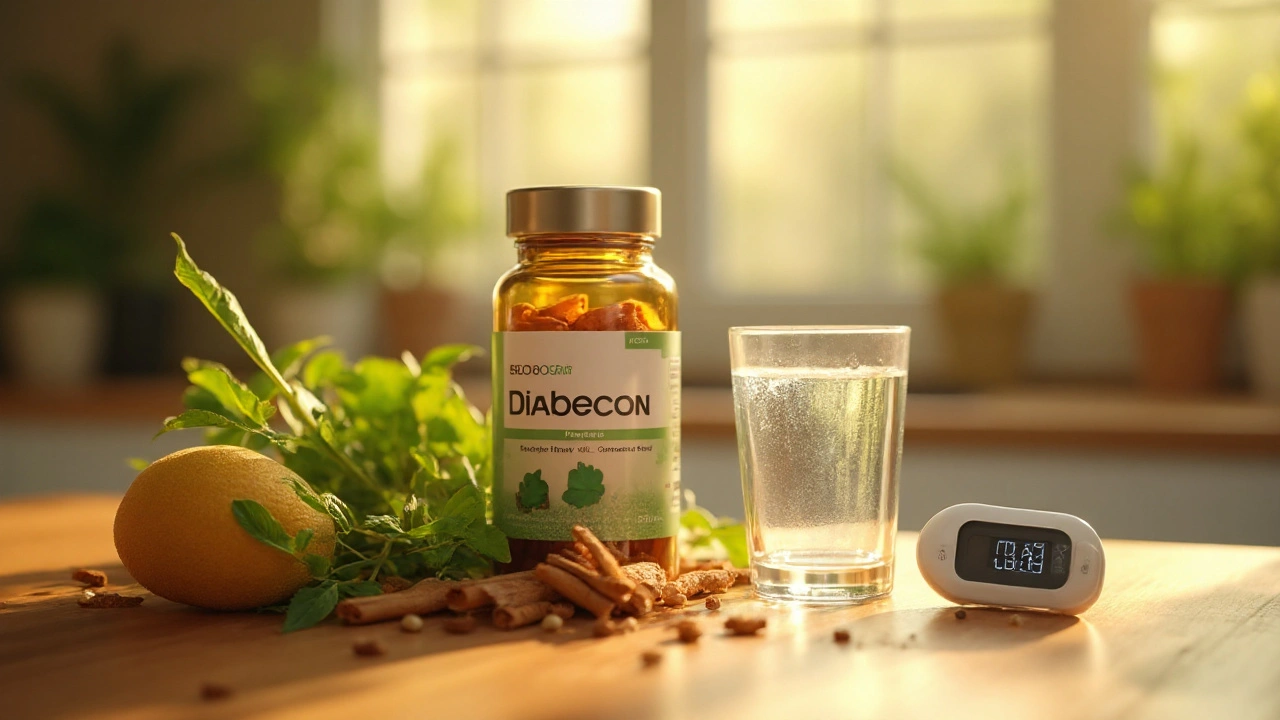Diabetes Supplements – What Works and Why
If you have diabetes, you probably hear a lot about diet, meds, and exercise. Supplements often get mentioned too, but which ones really matter? Below we break down the most studied ingredients, how they can fit into a daily routine, and what to watch out for.
Common Blood‑Sugar Boosters
Cinnamon is a spice that many people sprinkle on oatmeal. Studies show it can improve insulin sensitivity, meaning your body uses insulin more efficiently. A typical dose is 1–2 grams (about a half to one teaspoon) taken with meals.
Chromium picolinate helps transport glucose into cells. Research suggests 200‑350 µg per day may lower fasting blood sugar modestly. It’s easy to find in tablet form, but avoid mega‑doses unless a doctor tells you otherwise.
Berberine comes from several plants like goldenseal. It works similarly to some prescription meds by reducing glucose production in the liver. Most users take 500 mg three times a day with meals. Expect a possible mild stomach upset at first.
Choosing What’s Right for You
Start with a single supplement. Add it to your routine for a few weeks and watch any changes in your glucose logs. If you see a steady improvement and no side effects, you can consider a second ingredient.
Look for products that list the exact amount of the active ingredient, not just a proprietary blend. Third‑party testing seals (USP, NSF) add extra confidence that what’s on the label matches what’s inside.
Don’t forget the basics: a balanced diet, regular movement, and prescribed meds. Supplements are a helper, not a replacement. Talk to your healthcare provider before mixing anything with insulin or other blood‑sugar meds.
Other popular options include magnesium (helps with muscle cramps and may improve insulin action) and alpha‑lipoic acid (an antioxidant that can lower fasting glucose). Both are generally safe at 300‑600 mg per day, but again, check with a professional.
Finally, keep a simple log: note the supplement, dose, time, and any changes in blood sugar or how you feel. Over time you’ll see patterns and can decide whether a supplement is worth keeping.
In short, the best diabetes supplements are those with solid research, clear dosing, and a clean ingredient list. Pair them with good food, movement, and regular check‑ups, and you’ll have a stronger toolbox for managing blood sugar.
Diabecon Review 2025: Ingredients, Benefits, Side Effects & How It Stacks Up Against Conventional Diabetes Medicines
Discover what Diabecon is, its key herbal ingredients, how it affects blood sugar, safety data, and how it compares to prescription drugs like Metformin. Get a clear picture before you decide.
